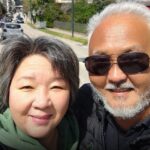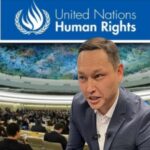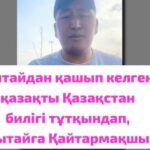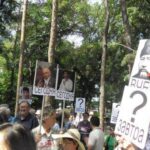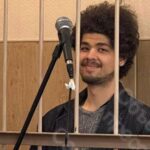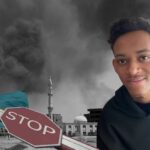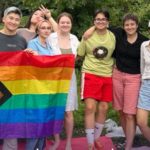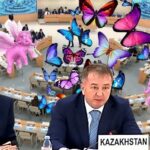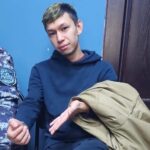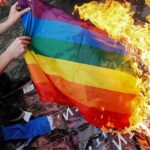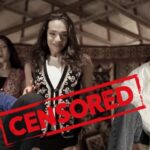The following written statement has been prepared by International Partnership for Human Rights (IPHR, Belgium); Kazakhstan International Bureau for Human Rights and Rule of Law (KIBHR, Kazakhstan); the Legal Prosperity Foundation (Kyrgyzstan); Nota Bene, Independent Center for Human Rights Protection and the Lawyers’ Association of Pamir (Tajikistan); Turkmen Initiative for Human Rights (TIHR, Turkmenistan, based in exile in Austria); and the Association for Human Rights in Central Asia (AHRCA, Uzbekistan, established by political emigres in France) for the 2017 OSCE Human Dimension Implementation Meeting:[1]
The space for civil society to operate in Central Asia remains restricted and the situation has deteriorated further in a number of respects in the past year. In the context of the protracted economic downturn and other recent developments, Central Asian governments have pursued those who scrutinize and criticize their policies. Government-organized, high-profile international events such as the EXPO in Kazakhstan and the Asiada Games in Turkmenistan have prompted the authorities to step up efforts to stifle criticism rather than to ease pressure. Uzbekistan’s new president has taken some, limited steps to break with the repressive practice of his predecessor but has yet to initiate systematic, meaningful human rights reform. In Kyrgyzstan, free speech and civil society action have come under serious attack ahead of the October 2017 presidential elections as the outgoing president seeks to preserve his legacy. In Tajikistan, the authorities continue to restrict fundamental rights in the name of safeguarding national security and stability, a trend which is seen across the region.
We call on the Central Asian authorities to stop limiting civil society space and to stop viewing the peaceful exercise of freedom of expression, association and assembly as a threat. The authorities should listen to and work together with civil society actors who draw attention to shortcomings of state policies rather than silencing them.
Below we describe major current concerns in each of the five Central Asian countries and provide recommendations to the authorities of these countries.
Kazakhstan
There were hopes that Kazakhstan’s authorities would take steps to decrease pressure on civil society in connection with the EXPO-2017, an international exhibition held in Astana in June-September 2017 designed to improve the country’s international image. Sadly, however, the crackdown on dissenting voices has continued unabated in recent months.
The authorities have continued to detain, prosecute and imprison civil society activists, trade union leaders, independent journalists, social media users and other outspoken individuals in retaliation for their exercise of freedom of expression and other fundamental freedoms. Currently over a dozen such individuals are in prison on politically motivated grounds. Among these are trade union leaders Nurbek Kushakbayev and Amin Yeleusinov, who were convicted over a workers’ hunger strike launched to protest against the January 2017 court decision to close down the country’s largest independent trade union. Civil society activists Max Bokayev and Talgat Ayan remain behind bars after being imprisoned in November 2016 for their involvement in nation-wide protests against land reforms. The UN Working Group on Arbitrary Detention recently deemed their detention unlawful, concluding that it resulted from their exercise of freedom of expression and assembly and called for their immediate release.[ii] A number of activists, journalists and bloggers who have escaped imprisonment have been subjected to years of restrictions on their freedom of movement and civic engagement. One example is that of Larisa Kharkova, who was prosecuted following a court order closing the independent trade union federation she led. Zhanbolat Mamay, editor in chief of an opposition newspaper, was also sentenced to court-imposed restrictions on his freedom and banned from journalist activities for three years when he was found guilty on charges of allegedly laundering money through his newspaper on 7 September 2017.[iii]
The few remaining independent and opposition media outlets face ongoing pressure, including accusations of offending public figures and officials and punitive civil defamation lawsuits initiated by such individuals. New draft legislation on the media approved by the government in May 2017 threatens to further undermine opportunities for independent journalism in the country, e.g. by introducing broadly worded requirements for journalists to verify the accuracy of information and to obtain consent for the publication of information considered to entail private or commercial secrets. Other new draft legislation proposed by the government would introduce additional, serious restrictions on religious communities and their activities.
Tax legislation adopted last year introduced new reporting obligations for NGOs and other entities receiving foreign funding for certain activities, including the provision of legal assistance and information gathering/dissemination. Several foreign-funded human rights NGOs were subjected to intrusive and lengthy tax inspections on the basis of an alleged complaint from a “concerned” citizen. Following such inspections, the NGOs Liberty and the International Legal Initiative were ordered to pay several thousand EUR in back taxes and fines for allegedly failing to pay corporate income tax on foreign grants, although by law such grants are tax exempt. The inspection of a third NGO, Dignity, dragged on for nine months before it concluded without finding any violations of tax regulations.
As before, peaceful protests are regularly dispersed and the participants detained and penalized for holding assemblies without prior permission. The authorities deem it necessary to obtain permission for even informal gatherings, if they in any way are aimed at expressing common positions of citizens, and more and more civil society representatives have been detained and questioned for simply discussing plans for such gatherings on social media. In an important decision, the UN Human Rights Committee recently concluded that the rights of a KIBHR representative were violated when he was detained and fined for holding a peaceful, one-person protest without advance permission and again called for bringing the country’s assembly law into line with international standards.[iv]
Kyrgyzstan
The climate for free speech and civil society engagement has deteriorated significantly in Kyrgyzstan in the period leading up to the presidential elections on 15 October 2017.
Current President Almazbek Atambayev has repeatedly lambasted those critical of his polices, accusing them of discrediting him and destabilizing the situation in the country. The independent Zanozanews site, its cofounders and journalists Narynbek Idinov and Dina Maslova, human rights defender Cholpon Djakupova and lawyers from the opposition Ata Meken party have all been convicted of defamation and ordered to pay a total of several hundred thousand EURs in moral damages for publishing articles that displeased the president. These financially crippling lawsuits were initiated by the General Prosecutor, acting on behalf of the president. In late August 2017, the September TV station was banned by court for allegedly disseminating extremist material when airing an interview with a regional police chief. The TV station is linked to current opposition leader Omurbek Tekebayev and has reported critically on the government.
Journalist Ulugbek Babakulov was subjected to a public smear campaign and charged with inciting inter-ethnic hatred after publishing an article in May 2017 that drew attention to aggressive nationalism against ethnic Uzbeks on social media in Kyrgyzstan. If found guilty of these charges, he could face a lengthy prison sentence. The independent Fergana news site, on which the article appeared, was blocked in the country by court. Fearing for his safety, Babakulov fled Kyrgyzstan. His family, who remains in the country, has reported being subjected to ongoing surveillance and intimidation.
Human rights defender Azimjan Askarov remains in prison after his life sentence was upheld at a re-appeals trial in January 2017. Last year, the UN Human Rights Committee called for his immediate release and the quashing of his original conviction but this did not happen. Prosecutors have pushed for the confiscation of Askarov’s family home as part of the execution of his sentence, although national legislation prohibits confiscating property where family members reside. Finally, at the beginning of September 2017, a district court in southern Kyrgyzstan ruled to cancel the order to seize the house.
Negative and suspicious attitudes toward foreign-funded NGOs remain prevalent, although the parliament eventually rejected a Russia-inspired “foreign agents” bill last year. Amendments to election legislation adopted by the parliament in May this year introduced new problematic restrictions on NGO monitoring of elections ahead of the upcoming presidential vote.
While most peaceful protests take place without interference, the authorities have unduly restricted the right to freedom of assembly in a number of recent cases, in violation of the country’s liberal legislation in this area, as well as international standards. Such restrictions include a court-sanctioned ban on holding protests at key locations in Bishkek in the months leading up the presidential elections and the detention of participants in anti-government protests.
Tajikistan
In the recent final report on his 2016 visit to Tajikistan[v], the UN Special Rapporteur on freedom of opinion and expression raised concerns about the repression of independent media, online information, civil society space, and dissident voices in the name of protecting security and public order. He called on the authorities to reconsider this approach, saying it “may be undermining the very […] goals the Government purports to be pursuing”.
Journalists have reported facing increasing pressure, and self-censorship is widespread due to fears of repercussions for critical reporting, in particular in the context of the economic crisis. Several media outlets have been forced to close down, and a number of journalists have left the country. Arbitrary blocking of news and social media sites has become a regular occurrence. New legislation adopted in summer 2017 granted the law enforcement authorities new powers to track citizens’ internet activity. Legislation adopted last year requires all internet providers to channel their services through a so-called unified communications center operating under the state Tajik Telecom company, which has reinforced concerns about surveillance of internet communications in violation of international standards.
NGOs operate in an environment of uncertainty, in which the authorities have stepped up checks of their activities. This year, a number of organizations have been subjected to intrusive inspections by the Ministry of Justice, the Tax Committee and other state bodies. In some cases, these inspections have ended with findings of alleged violations of legal requirements that the NGOs in question have been required to address or else face sanctions. NGOs have also reported being subjected to more checks and protracted procedures with respect to re-registration, which they are required to undergo when changing their legal address or statutes. A requirement for NGOs to report foreign funds prior to using them has been applied since 2016. There are concerns that new draft legislation on the operation and registration of NGOs, which is currently under consideration by the government, may introduce additional restrictions. Civil society groups also fear that new broadly worded anti-corruption legislation, which requires NGOs to undergo annual assessments of corruption risks, may be used to unduly interfere with their work.
Lawyers have recently come under growing pressure. New restrictive legislation on the licensing of lawyers has been enforced and lawyers working on politically sensitive cases have been subjected to intimidation, harassment and criminal prosecution. The case of lawyers Buzurgmehr Yorov and Nuriddin Mahkamov is of particular concern. Following a closed trial, both men were given lengthy prison sentences last October on extremism and other charges, which were initiated against them after they defended political opposition members. In addition, several other criminal cases have been brought against Yorov on questionable grounds, resulting in that his prison term has been extended to a total of 28 years. His lawyer and family members have been subjected to pressure.
Turkmenistan
Ahead of the Asiada, an international sports competition taking place in Ashgabat in September 2017, the Turkmenistani authorities have gone to great lengths to ensure that nothing spoils the image of the country in the eyes of the foreign visitors. In doing so the authorities have taken measures restricting fundamental rights.
The president has repeatedly stressed what he considers to be the obligation of the country’s state-controlled media to focus on reporting positive developments and achievements of the regime, including with the respect to the Asiada. While the preparations for this competition have resulted in various restrictions targeting residents, this has not been covered in national media.
The authorities have pledged to ensure that Asiada visitors have unrestricted access to high-speed internet. However, for citizens, internet access remains restricted, slow and expensive. Many foreign news sites, social media sites, and online communications apps continue to be blocked. A statement made by the president in October last year, calling for preventing the spread of “false” information on the internet during the Asiada, triggered reinforced measures by security agencies to prevent the dissemination of information critical of the government. Internet users were summoned for questioning after taking part in social media discussions and warned to stop using these sites on threat of arrests, travel bans, dismissal from their jobs and other repercussions.
The authorities have also continued to forcibly dismantle private satellite dishes used to access foreign TV and radio channels, and residents have been intimidated to dissuade them from listening to the Turkmen service of Radio Free Europe/Radio Liberty. A new wave of persecution has targeted correspondents for this service and other critical voices. RFE/RL correspondent Hudaiberdi Allashov and his mother remain under police supervision after being given suspended three-year prison sentences on charges of possessing chewing tobacco in February 2017. Torture allegations in this case have not been adequately investigated. Freelance journalist Saparmamed Nepeskuliev is still in prison after being convicted of charges of possessing prohibited drugs in August 2015. Nataliya Shabunts, an outspoken civil society activist who cooperates with TIHR, has been subjected to ongoing surveillance in recent months and in August 2017, she was assaulted in the street by a group of unknown women, who yelled racist slurs at her and told her to leave the country.[vi] RFE/RL correspondent, Soltan Achilova has repeatedly been intimidated and attacked in the past year. Most recently, she reported being warned and prevented from taking photographs in a series of incidents in July 2017.[vii]
The authorities continue to forcibly mobilize employees of state institutions, GONGO members, students and other residents for various mass events and time-consuming repetitions for such events. For example, residents have been forcibly mobilized for festivities to be held during the Asiada.
Uzbekistan
Since President Shavkat Mirziyoyev took office last year, Uzbekistan’s government has taken certain welcome steps with respect to human rights protection in the country.
Among others, the government has released a number of government critics who had been held for years in prison, and decreed to abolish the repressive Soviet-era system of exit visas that to date has been used to put pressure on inconvenient individuals. It received the UN High Commissioner for Human Rights for a first-ever visit to the country in May this year and has extended an invitation to one of the more than a dozen UN special rapporteurs on human rights who have requested to visit Uzbekistan. It has also re-accredited the BBC’s Uzbek service that was forced to leave the country in 2005 and given the green light for the first Human Rights Watch mission to visit the country in years. These and other recent steps may signal a break with past practice and give reason to hope for further positive developments. However, the measures taken so far have focused on backtracking on repressive policies rather than on implementing the systematic, progressive reforms needed for true human rights improvements to take place.
Human rights defender Bobomurad Razzokov, political activist Samandar Kukanov, journalists Muhammad Bekjanov and Jamshid Karimov and former UN staff member Erkin Musaev have all been released since last October. While their release is a relief, they were all convicted for politically motivated reasons and should never have been imprisoned in the first place. Many other government critics are still behind bars, and human rights defender Nuraddin Jumaniyazov died in detention in December 2016.
The pattern of state persecution of human rights defenders, journalists, bloggers and dissident voices continues. AHRCA and IPHR have documented a series of recent cases when such individuals have been threatened, attacked, publicly discredited, and detained and interrogated. Travel restrictions continue to be used against government critics and their family members. Despite repeated appeals since 2014, human rights lawyer Polina Braunerg was not allowed to travel abroad for medical treatment, and in May 2017 she died after suffering a stroke. Former political prisoner Murad Djuraev, who was released in 2015, has been denied the right to travel abroad for spinal surgery. Others who have not been allowed to travel abroad include journalist Muhammad Bekjanov, artist Vyeslav Akhunov and writer Mamadali Mahmudov.[viii] Forcible psychiatric detention remains another tool used against critics. For example, human rights defender Elena Urlayeva was held in a psychiatric hospital against her will for several weeks in March 2017. The authorities carry out unlawful, systematic surveillance of critical voices, not only inside but also outside Uzbekistan.
The few independent groups working on human rights issues continue to face serious obstacles, including cumbersome registration processes. Protests are rare due to fears of reprisals, with only occasional protests on socio-economic issues taking place. In May 2017, a broad public response to a case of bullying that resulted in the death of a student pushed the authorities to take action to investigate this case. However, the security services also reportedly put pressure on those who organized an online petition, participated in a rally in Tashkent or commented on the issue on social media.
Recommendations
On the basis of the issues discussed above, we could like to make the following recommendations:
The authorities of Kazakhstan should:
- Stop detaining, prosecuting and imprisoning journalists, human rights defenders, trade union activists and other critical voices in retaliation for their exercise of freedom of expression and other fundamental rights.
- Release all those who have been deprived of their liberty for their independent civic engagement, journalist work or criticism of the authorities and abolish restrictions on the movement and public engagement imposed on individuals prosecuted on such grounds.
- Put an end to the pattern of pressure on independent and opposition-minded media and journalists.
- Refrain from using tax legislation to unduly interfere in and restrict the activities of NGOs, and revise the draft legislation in media and religious activities currently under consideration to ensure that it is consistent with Kazakhstan’s international obligations.
- As a matter of priority, reform legislation and law enforcement practice on the conduct of assemblies to bring them into line with international human rights standards, as also called for by international human rights bodies.
The authorities of Kyrgyzstan should:
- Refrain from using hostile and stigmatizing language against independent media and journalists, human rights groups and defenders and others who voice concerns about current policies and criticize those in power, including the president, and ensure that they are not subjected to punitive measures on the grounds of their legitimate activities.
- Abolish the role of the General Prosecutor with respect to initiating legal action to defend the honour and dignity of the president, and ensure that all legal proceedings initiated on this ground are terminated.
- Drop the unfounded criminal charges on inciting inter-ethnic hatred initiated against journalist Ulugbek Babakulov and ensure the safety of his family.
- Fully implement the UN Human Rights Committee’s decision in the case of Azimjan Askarov, including by releasing him, quashing his initial conviction and granting him adequate compensation.
- Refrain from imposing blanket bans on holding assemblies in certain locations, and safeguard the right to freedom of assembly in accordance with national and international law. Carry out through, prompt and impartial investigations into any alleged violations of this right.
The authorities of Tajikistan should:
- Take concrete and effective measures to implement the recommendations made by the UN Special Rapporteur on freedom of opinion and expression in his final report on his visit to Tajikistan.
- Ensure that media and journalists are not subjected to pressure and can carry out their work without fear and intimidation.
- Put an end to the pattern of arbitrary blocking of news, social media and other websites and refrain from conducting invasive surveillance of the internet use of residents in violation of international standards.
- Ensure that NGOs are not subjected to undue restrictions and interference in their work.
- Ensure that no lawyer is arrested, charged or imprisoned in retaliation for his or her work; promptly release those held on such grounds.
The authorities of Turkmenistan should:
- Promote media pluralism and put an end to government censorship and interference into the editorial policies of media.
- Promote universal, affordable and unobstructed internet access and refrain from arbitrarily blocking access to websites.
- Stop forcibly dismantling satellite dishes and refrain from measures of intimidation against social media users, RFE/RL listeners and other individuals seeking to obtain information from alternative, foreign sources.
- Stop persecuting independent journalists, civil society activists and other critical voices; carry out thorough investigations into all reported cases of harassment of such individuals with a view to holding the perpetrators accountable; and release all who have been detained on the grounds of exercising their fundamental rights.
- Put an end to the practice of forcibly mobilizing residents for participation in mass events.
The authorities of Uzbekistan should:
- Carry out systematic human rights reforms with a view to bringing about concrete improvements.
- Immediately and unconditionally release all those who have been detained solely for peacefully exercising their rights to freedom of expression, association and assembly.
- Put an end to state persecution of human rights defenders, journalists, dissidents and other critical voices and allow them to carry out their activities without intimidation.
- Abolish the use of exit visas in practice and stop restricting the right of former political prisoners and other critical voices to travel abroad for urgent medical treatment and other reasons.
- Enable independent human rights NGOs to register through a simple and uncomplicated procedure and allow them to carry out their work without undue interference.
- Issue invitations to all the UN Special Rapporteurs who have asked for permission to visit the country and constructively cooperate with these experts on the implementation of visits and follow-up on their recommendations.
[1] For more information on these issues, see also regular updates on the civil society situation in the Central Asian countries prepared by KIBHR and IPHR on Kazakhstan; Legal Prosperity and IPHR on Kyrgyzstan; Nota Bene, the Lawyers Association of Pamir and IPHR on Tajikistan, TIHR and IPHR on Turkmenistan, and the AHRCA and IPHR on Uzbekistan, available at: http://iphronline.org/publications/reports-briefing-papers.
[ii] Opinion No. 16/2017 of the Working Group on Arbitrary Detention concerning Max Bokayev and Talgat Ayanov
(Kazakhstan), published on 27 June 2017, http://www.ohchr.org/Documents/Issues/Detention/Opinions/Session78/A_HRC_WGAD_2017_16.pdf
[iii] See statement by the civil society committee established in support of Zhanbolat Mamay, https://bureau.kz/novosti/sobstvennaya/zayavlenie_po_prigovoru_suda_mamaya/
[iv] Views adopted by the Human Rights Committee on Communication No. 2158/2012 in July 2017.
[v] Available at: http://www.ohchr.org/EN/HRBodies/HRC/RegularSessions/Session35/Pages/ListReports.aspx
[vi] See TIHR news alert at: http://en.chrono-tm.org/2017/08/human-rights-activist-natalya-shabunts-verbally-assaulted-in-ashgabat/
[vii] See statement by Human Rights Watch and TIHR: http://en.chrono-tm.org/2017/08/turkmenistan-death-threats-against-journalist/
[viii] For more information about the use of travel bans against critical voices, see AHRCA and IPHR update from July 2017: http://iphronline.org/uzbekistan-tentative-hope-human-rights-improvements.html
http://iphronline.org/the-danger-of-speaking-out-in-central-asia.html


